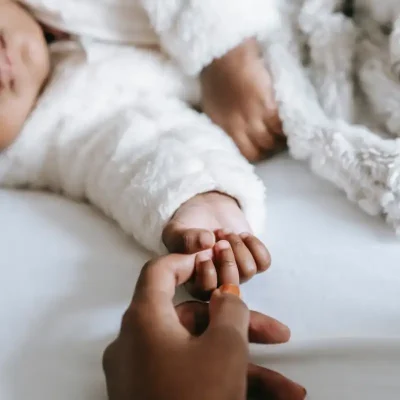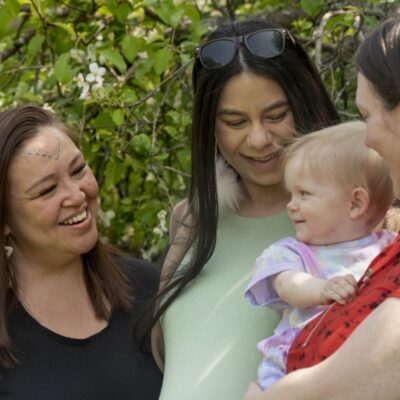Family well-being
Family well-being
Advancing child and family well-being
All children, youth, families, communities, and Indigenous Nations are entitled to live and thrive according to their own wholistic understanding of well-being.
At West Coast LEAF, we aim to uplift and amplify the wisdom and expertise of Indigenous leaders, families, Elders, and child and family well-being advocates to reclaim and transform the family policing system.

Naming the family policing system
We are working to shift BC’s current system of colonial intervention – commonly called “child welfare” or “child protection” – to one of child and family well-being, where all children, families and communities can thrive.
In taking up work in the area of law known as “child welfare” or “child protection” we have been privileged to learn from families, Nations, and advocates in BC and beyond who have generously shared their wisdom with us. As part of our learning journey, we reflected on the power of language to name and describe the laws, policies, and actions that together regulate and impact family relationships.
Following Dr. Dorothy Roberts we use the term family policing to accurately reflect the impacts of these systems on the well-being of children and their families.
The family policing system maintains power and control over the lives of families and children—most often Indigenous families and children—through surveillance, regulation, and punishment. Families who are struggling under the weight of systemic injustices like racism and poverty need supports, such as adequate housing, livable income and disability rates, and mental health services. Instead of recognizing these injustices as the systemic barriers they are, the system sees family struggles as individual failings.
Supporting children and families to thrive
We envision a child and family well-being system in place of the family policing system. A child and family well-being system involves resourcing and supporting children, youth, families, communities, and First Nations, Metis, and Inuit Peoples to thrive according to their own wholistic understanding of well-being, without interference from the family policing system. This encompasses different frameworks, such as social determinants of health and Indigenous determinants of health.
Resources
Our latest resources, tools, and campaigns work to challenge the family policing system in BC and support advocacy efforts.
- The power of language: What do “family policing” and “child and family well-being” mean? (PDF)
- Webinar series: Addressing racism and white supremacy in child welfare in BC
- Documentary: Kids are only kids once
- A 360 view on family policing
- Primer: challenging the Ministry of Children and Family Development’s culture of risk and surveillance (PDF)
- Listen: Advocate says much hasn’t changed in year since report on child’s death in care

